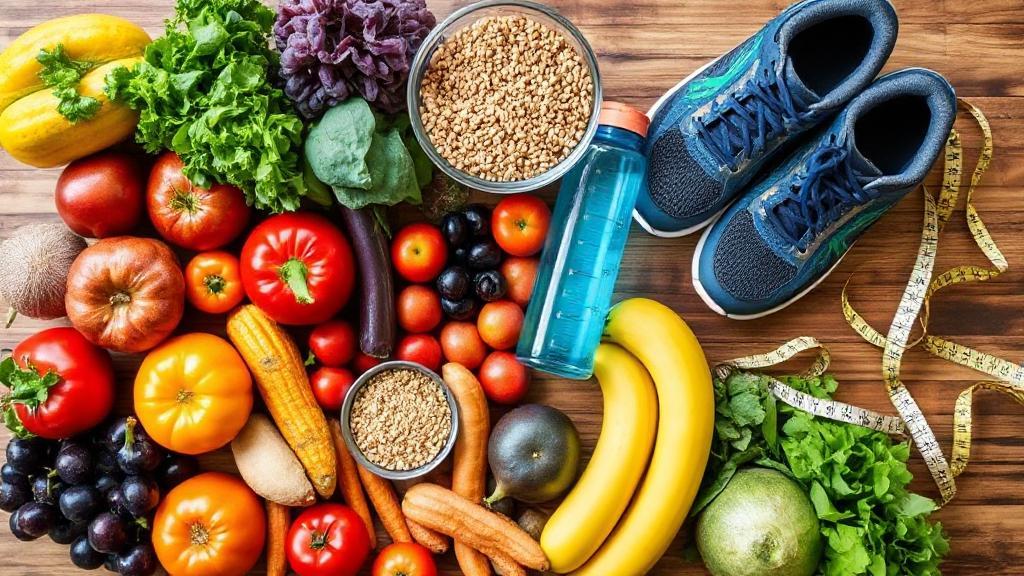Introduction
Metabolism is your body’s engine, converting food and drink into energy to fuel every heartbeat, breath, and movement. While genetics and age influence your metabolic rate, there are numerous natural strategies you can adopt to support and even enhance your metabolism. A faster metabolism not only aids in weight management but also supports overall vitality and well-being. Let’s explore science-backed, holistic ways to boost your metabolism naturally.
Understanding Metabolism
Metabolism encompasses all the chemical processes that keep you alive, from breathing to repairing cells. Your basal metabolic rate (BMR) is the number of calories your body burns at rest. While you can’t change your genes, you can influence your BMR and overall metabolic health through lifestyle choices.
Key factors affecting metabolism:
- Age: Metabolism slows with age.
- Genetics: Some people naturally burn calories faster.
- Hormones: Imbalances can impact metabolic rate.
- Lifestyle: Diet, exercise, sleep, and stress all play significant roles.
Dietary Tweaks for a Metabolic Edge
1. Power Up with Protein
Eating protein-rich foods increases the thermic effect of food (TEF)—the energy your body uses to digest and process nutrients. Protein raises your metabolic rate by 15–30%, compared to 5–10% for carbs and 0–3% for fats. It also helps you feel full longer, reducing the risk of overeating.
Top protein sources:
- Lean meats (chicken, turkey)
- Fish and seafood
- Eggs
- Legumes and beans
- Greek yogurt and cottage cheese
For more on how protein supports energy, see Top vitamins that boost energy levels naturally.
2. Spice Things Up
Spices like capsaicin (found in chili peppers), ginger, and turmeric can slightly increase calorie burning and fat oxidation. While the effect is modest, adding spice to your meals is a flavorful way to support metabolism. Learn more about capsaicin and metabolism.
3. Hydration is Key
Water is essential for nearly every bodily process, including metabolism. Even mild dehydration can slow your metabolic rate. Drinking water can temporarily boost metabolism by up to 30% for about an hour, especially if it’s cold, as your body uses energy to warm it.
Tips:
- Drink a glass of water before meals.
- Replace sugary drinks with water or herbal tea.
Explore more on Effective ways to improve digestion naturally.
4. Enjoy Coffee and Green Tea
- Coffee: Caffeine is a natural stimulant that can temporarily increase your metabolic rate and enhance fat burning.
- Green Tea: Contains both caffeine and catechins (like EGCG), which may work together to further boost metabolism and promote fat oxidation.
Read more about green tea and metabolism.
5. Don’t Skip Meals
Skipping meals can slow your metabolism as your body conserves energy. Eating balanced meals every 3–4 hours helps keep your metabolism active and your blood sugar stable.
Exercise and Physical Activity
1. Build Lean Muscle with Strength Training
Muscle tissue burns more calories at rest than fat tissue. Incorporate resistance training (weights, resistance bands, or bodyweight exercises) at least 2–3 times per week to increase your resting metabolic rate.
Compound exercises to try:
- Squats
- Deadlifts
- Push-ups
- Pull-ups
- Rows
2. Embrace High-Intensity Interval Training (HIIT)
HIIT involves short bursts of intense activity followed by rest. This not only burns more calories in less time but also increases your metabolic rate for hours after the workout (the “afterburn effect”).
Sample HIIT routine:
3. Increase Non-Exercise Activity Thermogenesis (NEAT)
NEAT is the energy you burn doing everyday activities like walking, fidgeting, or household chores. Small changes—taking the stairs, standing while working, or parking farther away—can add up to significant calorie expenditure.
Lifestyle Habits That Matter
Prioritize Quality Sleep
Poor sleep disrupts hormones that regulate appetite and energy use, slowing your metabolism and increasing the risk of weight gain. Aim for 7–9 hours of quality sleep nightly and maintain a consistent sleep schedule. For more tips, see Effective strategies to improve your sleep quality.
Manage Stress Effectively
Chronic stress elevates cortisol, which can slow metabolism and promote fat storage, especially around the abdomen. Manage stress through meditation, yoga, time in nature, or hobbies. For more, visit Effective strategies to naturally reduce cortisol levels.
Stand Up More
Sitting for long periods can slow your metabolism. Use a standing desk, take walking breaks, or set reminders to move every hour.
Strategic Supplementation
While no supplement replaces healthy habits, some may offer modest metabolic benefits:
Always consult a healthcare provider before starting supplements.
Holistic Approaches and Additional Tips
- Eat a variety of whole foods: Leafy greens, citrus fruits, whole grains, and fatty fish all support metabolic health.
- Avoid drastic calorie cuts: Extreme diets can cause your body to conserve energy and slow metabolism.
- Consider plant-based options: See Top benefits of adopting a plant-based diet.
- Support your immune system: A healthy immune system is linked to better metabolic function. Learn more at Effective ways to boost your immune system naturally.
- Reduce inflammation: Chronic inflammation can impair metabolism. Explore Effective strategies to reduce inflammation naturally.
- Detox safely: For tips, see Natural ways to detox your body safely and effectively.
- Lower blood pressure naturally: High blood pressure can be linked to metabolic issues. See Natural ways to lower blood pressure without medication.
- Sharpen your mind: Mental clarity and focus are often tied to metabolic health. Visit Effective strategies to improve mental clarity.
Conclusion
Boosting your metabolism naturally is about consistent, sustainable habits—regular exercise, a balanced diet rich in protein and whole foods, proper hydration, quality sleep, and effective stress management. While there’s no magic bullet, these strategies collectively support your body’s natural calorie-burning processes and overall health.
Start implementing these habits today to give your metabolism the natural boost it deserves!
